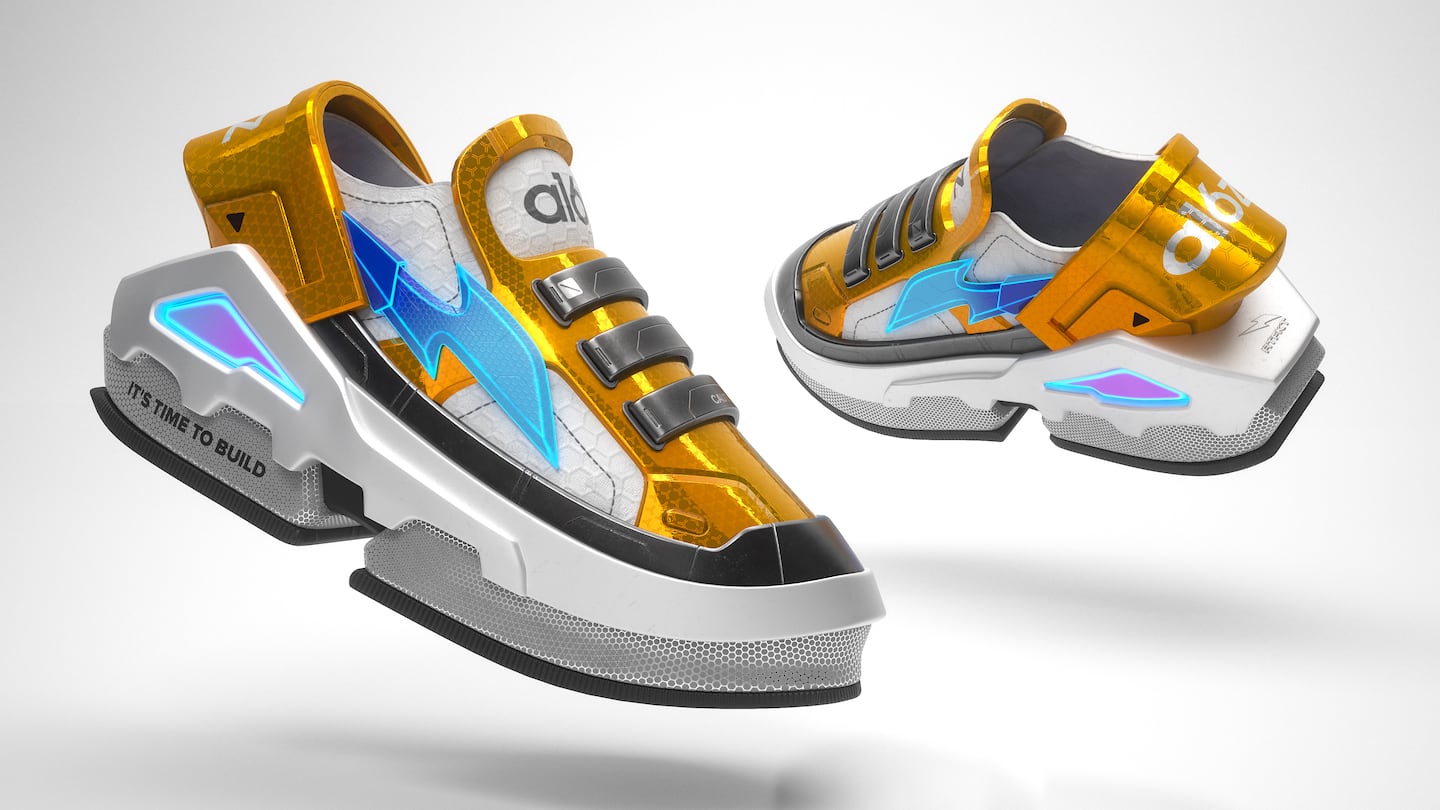
The Business of Fashion
Agenda-setting intelligence, analysis and advice for the global fashion community.

Agenda-setting intelligence, analysis and advice for the global fashion community.

Nike has made a major investment in the metaverse.
The sportswear behemoth announced on Monday that it is set to acquire RTFKT, a leading virtual fashion platform, best known as a creator of virtual sneakers. The terms of the deal were not disclosed.
The move marks the most significant push yet into virtual fashion and accessories on the part of a legacy brand. Founded in January 2020, RTFKT has quickly become a leading innovator within the space, taking a page from streetwear and arguably Nike’s own playbook, developing a rabid fan base through limited-edition drops and collaborations with artists such as Jeff Staple and Takashi Murakami.
RTFKT has also experienced explosive growth since its founding. Its monthly revenue in May 2021 was $4.5 million — in 2020, its annual revenue was a fraction of that at $600,000. Also in May, the company announced an $8 million funding round led by venture capital firm Andreessen Horowitz, with plans to build out its internal infrastructure and online marketplace.
ADVERTISEMENT
Now, Nike will play a role in steering that expansion.
“Our plan is to invest in the RTFKT brand, serve and grow their innovative and creative community and extend Nike’s digital footprint and capabilities,” said John Donahoe, president and chief executive of Nike, in a statement.
It’s unclear how the two companies will work together moving forward. In Nike’s announcement, a video featuring RTFKT’s logo appearing alongside that of Converse, Jordan and Nike itself suggests that the company plans to scale the brand as its own distinct entity rather than absorbing it into the Nike brand.
For comparison, the only other sneaker company Nike has acquired — Jordan was created by Nike and then spun off into a standalone brand in 1997 — is Converse, which it purchased for $309 million in July 2003.
Though the acquisition of RTFKT is Nike’s most substantial investment in expanding into virtual spaces, it’s not its first move in the space. In 2019, it partnered with gaming platform Roblox to create a trio of digital characters and worked with Fortnite to bring Jordan sneakers into the game. At the end of that same year, it was also granted a patent that allowed Nike to link a digital asset to a physical sneaker using blockchain technology.
Its efforts continued this year. In October, Nike filed trademark applications for virtual goods and it has sought to hire in the space, posting job listings for “virtual material” designers. It also launched a new collaboration with Fortnite again centred on its Jordan brand and a full-fledged experience in Roblox called Nikeland.
Despite Nike’s clear interest in virtual goods, they aren’t likely to make up a substantial share of its revenue anytime soon. The bulk of Nike’s $44.5 billion in sales in its latest fiscal year can be attributed to good old-fashioned physical footwear.
“I do not see a commercial opportunity for the metaverse,” Matt Powell, the sports industry analyst for research firm NPD Group, told BoF in reference to Nike’s purchase of RTFKT. “Owning virtual shoes will only appeal to a tiny sliver of the market.”
ADVERTISEMENT
But not everyone may agree with that assessment. Fifty percent of US consumers are interested in purchasing some kind of digital asset in the next 12 months, according to the latest BoF Insights report. In November, Morgan Stanley analysts predicted the currently negligible market for luxury NFTs could grow to more than €20 billion ($22.6 billion) by 2030. Gaming presents one lucrative opportunity, as many gamers are already buying cosmetic skins that allow them to change the appearance of their avatar.
Nike is also competing to stay ahead of its main rival Adidas, which has made its own series of metaverse-related moves. In just the past month, it announced a partnership with cryptocurrency exchange Coinbase, grabbed a space in virtual world The Sandbox and unveiled a collaboration with the NFT projects Bored Ape Yacht Club and Punks Comic.
But Nike’s interest in RTFKT likely went beyond hopes of an immediate financial return. RTFKT’s fanbase and online community will be an asset for Nike as it seeks to understand where it fits in the world of virtual fashion and what consumers are looking for from brands — both areas it could arguably use help in. Chad Knight, who recently departed his role at Nike as a director of 3D footwear design to join a metaverse company, told Complex he didn’t feel he had an opportunity to build the metaverse at Nike.
“Unfortunately you cannot have ideas about subject matter unless you possess knowledge of it,” he said.
RTFKT first made headlines for its record-breaking NFT release of virtual sneakers with digital artist Fewocious, which sold over $3.1 million worth of product in seven minutes. Pairs of sneakers ranged from $3,000 to $10,000. (Products from the release are now selling for more than double their initial prices on NFT marketplace OpenSea.)
In recent months, the company has been moving beyond sneakers and accessories into other product categories. Its most recent release was a series of digital avatars designed with artist Takashi Murakami. How that expansion will continue under Nike remains to be seen.
RTFKT’s size and expertise within the world of virtual fashion have allowed it to be agile in adjusting to changes and innovating new products. That approach may present a challenge as it works under a more established company.
 Opens in new window
Opens in new windowPhysical and digital worlds merge in the Metaverse. Can the luxury world dematerialise into the virtual space fast enough to attract eager customers — and their avatars?
BoF Insights’ guide to digital assets in fashion, which examines the rise of the metaverse and underlying technological, social and consumer shifts, plus includes a playbook for how to seize the opportunity.
Both trade in heavily hyped, limited-edition products that offer a sense of community. Fashion brands aiming to tap digital art take note.

Marc Bain is Technology Correspondent at The Business of Fashion. He is based in New York and drives BoF’s coverage of technology and innovation, from start-ups to Big Tech.
The nature of livestream transactions makes it hard to identify and weed out counterfeits and fakes despite growth of new technologies aimed at detecting infringement.
The extraordinary expectations placed on the technology have set it up for the inevitable comedown. But that’s when the real work of seeing whether it can be truly transformative begins.
Successful social media acquisitions require keeping both talent and technology in place. Neither is likely to happen in a deal for the Chinese app, writes Dave Lee.
TikTok’s first time sponsoring the glitzy event comes just as the US effectively deemed the company a national security threat under its current ownership, raising complications for Condé Nast and the gala’s other organisers.